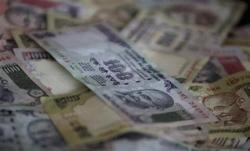
Even as Finance Minister P Chidambaram has been holding out hope for an early rollout of the Goods & Services Tax (GST), some Bharatiya Janata Party (BJP) -ruled states like Madhya Pradesh and Gujarat, still opposed to the indirect tax regime, could pour cold water on his plan to bring it before the general elections, scheduled for 2014.
Two sub-committees, set up by the government to resolve the issues of compensation to states for revenue loss on account of a reduction in central sales tax and the final design of GST, are also likely to miss the December 31 deadline for giving their reports.
Madhya Pradesh Finance Minister Raghavji says his state will support GST, provided the Centre agrees to a model suggested by it. Though GST is expected to be both central and state tax on a common pool of goods and services, with some flexibility, Madhya Pradesh has been insisting states should be allowed to collect service tax and the Centre should not get into areas already taxed by states.
Madhya Pradesh, with some other states, has also been asking for more flexibility in altering tax rates, while the Centre wants a uniform GST rate across the country.
The finance minister of a state said there had not been much headway in the talks between the Centre and states and the sub-committees might have to be given more time to complete their reports.
"A few officials from the Centre and state government can't decide the design and road map for GST over a couple of meetings," he said. Asked if some consensus had been reached over some areas after Chidambaram took charge as the finance minister in August, he said: "Nothing has changed."
The two sub-committees had been set up after the first meeting of the Empowered Committee of State Finance Ministers with Chidambaram on November 8. The two sides are expected to meet again in January, after the sub-panels have given their reports.
Chidambaram's statements on early passage of the Constitution Amendment Bill and the introduction of GST by the end of this financial year had sparked hopes that the new indirect tax regime could see the light of the day before the country went for general elections in 2014.
Parliament's standing committee on finance, headed by BJP leader Yashwant Sinha, is yet to give its report on the Constitution Amendment Bill for GST. To address some of the issues raised by states on provisions of the Bill, the finance ministry would have to make some changes to it. These would need to be passed by a two-third majority in each House of Parliament; then, at least half the state Assemblies would have to ratify it.